Dog Attacks On Wildlife On North Palm Beach
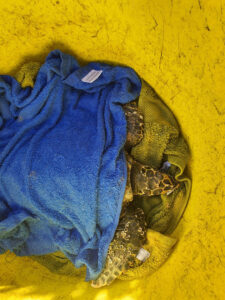
''The NSW Office of Local Government (OLG, March 2023) indicates that there are 150,000 microchipped dogs on the Central Coast with an approximate 110,000 of those dogs’ registered dogs in 2023. However, deceased and sold/relocated pets are not identifiable from database records. As a result, dogs registered since 1988 remain on the NSW Government database. Therefore, and taking into consideration potential inaccuracies with the OLG data, Council estimated that there were approximately 65,000 dogs residing within the Central Coast LGA in 2022. Only dogs listed on the registration database as of 2008 were included in dog population counts use for this Plan. ''
Central Coast Council is the second largest council in NSW after Blacktown Council (which has 102,063 Microchipped dogs in LGA according to the NSW Office of Local Government).
Despite this strangely versed counting, the Central Coast record shows there were 9 people in what is defined as serious attacks(where the injury resulted in medical treatment, hospitalisation or death), 28 were attacks on people deemed less serious. The total animals attacked is listed as 45.
The to December 2023 quarter records a further 47 attacks under the Northern Beaches Council, listing 26 people as having been attacked, 8 of them serious, and a further 34 animals attacked. This brings the official reported attacks in the NBC LGA to 112 for the first half of the 2023-2024 reporting period.
Blacktown Council beat the NBC in the to December 2023 quarter, recording, officially, 85 attacks - 61 on people and 48 on animals with 17 people needing medical treatment as a result. Central Coast Council records 54 reported attacks for the same quarter, 34 of them on people, and 43 attacks on other animals.
The 'reported attacks' do not take into account the many attacks not being reported, even by those whose pet has been mauled. Instances of dog owners appealing on social media platforms for the owner of an attacking dog to come forward and pay their vet bill, stating 'I won't report it' as part of that have become a regular post on NBC LGA platforms.
The Central Coast council has a 'for dog owners' approach around listed endangered wildlife nesting sites as well. The October 2023 draft version, now formalised, stated about Illoura Reserve -Davistown (Pg.14– Sites recommended for decommissioning and/or relocating);
'the site is recognised as having environmental significance because it is one of the few nesting sites on the Central Coast for the Bush Stone Curlew. Council has proposed that the existing protected area be extended into the parkland and to include water shallows associated with the protected area.
▪ There is poor compliance with leashing regulations along pathways and foreshore areas leading to the reserve. In addition, Council has received ongoing complaints from:
o residents about the poor control of dogs at this site, including owners who let dogs run onto private property
o from other trail and park users, including concerned dog walkers.
▪ The site is isolated and difficult for Council staff to monitor for compliance with leashing regulations
▪ Council recognises that the reserve and foreshore areas leading to it are attractive and popular with residents. For this reason, the DIOSAP does not recommend the exclusion of dogs but rather the leashing of dogs in the reserve and along pathways adjoining the reserve.
The plan 'recognises poor compliance', recognises this is 'one of the few nesting sites' for the ground dwelling ground nesting listed as Endangered in NSW Bush Stone Curlew, recognises CCC staff won't be monitoring the site for compliance, allows the site to remain open to dogs anyway.
This plan has been formulated under a State Government appointed Administrator. This is the second time since May 2016, following the forced amalgamation of Gosford City Council and Wyong Shire Council, the CCC has been under administration.
On 17 March 2022, the Minister for Local Government again dismissed all of the newly minted CCC Councillors. This followed their suspension since 30 October 2020.
That council remains under administration until the September 2024 local government elections.
Coast residents have stated, re the new dog plan for across their LGA:
''Unfortunately, they still don’t substantially address their failure to ensure compliance (such as through a more active response from rangers), kicking it down the road to some future investigation instead.'' - JH
''I see non compliance on the Central Coast every single day because people think it’s their god given right to do whatever they want whenever they want because their dog is ‘friendly’ or because that’s how it used to be or because that is how it is overseas. '' - MM
''When asked to leash their dogs they generally hurl verbal abuse at the person asking. Additionally, I have been physically threatened on more than one occasion. On the occasion I share photos of dogs in no dog or onleash areas I am ridiculed and bullied. I have been absolutely shocked by the non compliance and lack of respect of some dog owners on the Coast. Additionally I have been saddened at Councils reluctance to fine those doing the wrong thing. When I have tried to talk to Council about this I was shut down. It seems like the irresponsible dog owners are not penalised and the responsible dog owners lose out as a result. '' - AC
''It is not acceptable to say, 'I didn’t know’ if your dog is off leash in an onleash area. I always look for signs, research or call council if I’m unsure about an area. That’s my responsibility as a dog owner. Additionally it is my responsibility to pick up my dogs poop. This morning a man suggested I don’t bother picking up D's poop because it was on the grass. Please note we love our offleash areas and don’t want to lose what we have! We believe in following legislation. Attached are some photos of some off leash dogs on Toowoon Bay Beach this morning- it is clearly signed NO DOGS. '' - LB
''The whole of Avoca Beach including prohibited south of Shark Tower seems to have become an off leash area. Never see any Rangers around these days.'' - CS
The NSW Environment and Heritage webpage for the Bush Stone Curlew, dated 2018, states; 'the bush stone-curlew is now endangered in NSW, and experts worry that in 10 or 20 years it will be too late to prevent the species from becoming extinct.'
The Australian Department of Climate Change, Energy, the Environment and Water states;' its range has declined drastically in south-eastern Australia. It is now extinct in many former spots south of the Great Dividing Range. While its Victorian and New South Wales stronghold is along the border region, is sparsely distributed and continues to decline.'
The newly formalised CCC's 'Central Coast Dogs in Open Space Action Plan 2023-2033' indicates it is on course to ensure that council plays a part in the extinction of the Bush Stone Curlew in its LGA.
Residents are hoping there will be yet another 'dogs in open spaces' plan once they get their council back. They state the current 'council' has lost control of dogs in public spaces and 'does nothing' even when they do report attacks or dogs offleash where they are not meant to be.
.jpg?timestamp=1711825037061)
Bush Stone-Curlew Eggs
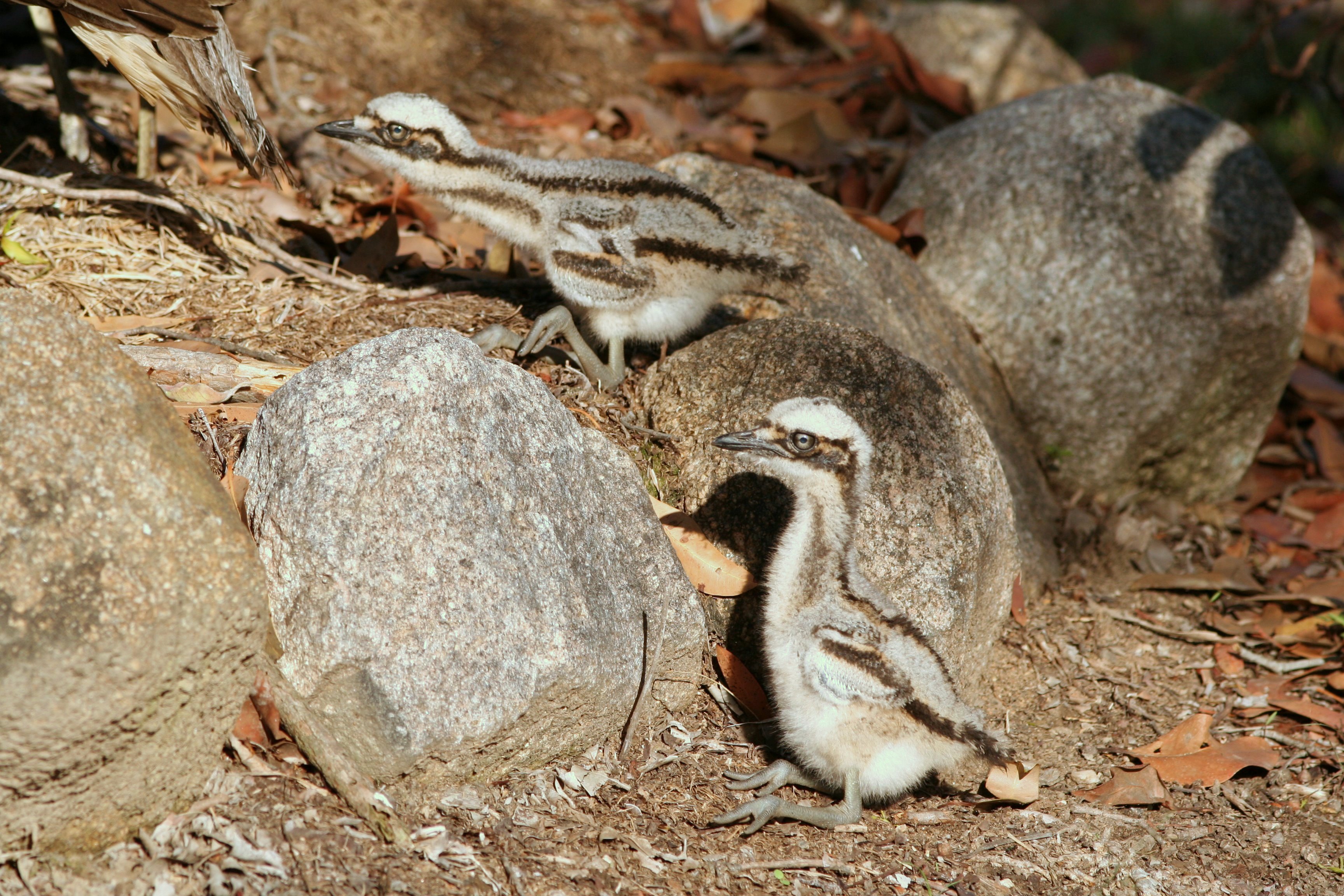
Bush Stone-curlew chicks. photo: Glen Fergus
In May 2016, Saratoga and District Sport and Recreation Association (SDSRA) issued a written request to Central Coast Council to consider, as a matter of urgency, the establishment of a Wildlife Protection Area throughout parts of Saratoga, Davistown, Kincumber, Kincumber South, Bensville, Empire Bay and St Huberts Island, for the protection of the local population of Bush Stone Curlews.
This proposal was presented to the former Gosford City Council by SDSRA in 1996 for the staged re-development of the recreation area within Crown Reserve R64760, on the western tip of the Saratoga Peninsula, that initially brought to the fore the presence of Bush Stone Curlews on the Central Coast. The subsequent plans for the re-development of the reserve were substantially modified to ensure the sustainability of the Bush Stone Curlews’ habitat. Despite Bush Stone Curlews having occupied Reserve R64760 continuously throughout living memory, the resident birds abandoned this location in December 2015.
The plight of the Bush Stone Curlews within Reserve R64760 highlights the stressful situation that the entire population of Bush Stone Curlews on the Central Coast is enduring, partly as a consequence of projects such as the redevelopment of the recreation area within Reserve R64760 and the construction of the cycleway link between Saratoga, Davistown and Kincumber, but primarily due to the pressures of increasing human-related activities - dogs being taken there offleash. Protection, enhancement and management of known Bush Stone Curlew habitat, particularly the long-established territories of breeding pairs, were key issues for that council to address.
Those concerned about Wildlife Protection Areas were imploring Central Coast Council to consider the protection of native wildlife. However, those trying to bring back the Bush Stone Curlew were irritated with the council’s handling of the issue over the past two decades. A case for the establishment of a Wildlife Protection Area over Bush Stone Curlew country on the foreshores of Brisbane Water was presented in a brochure then being distributed by SDSRA.
The Central Coast under administration committing an offence under the Companion Animals Act 1998; - 'Dog rushes at, attacks, bites, harasses or chases any person or animal, whether or not any injury is caused to the person or animal as a result of a reckless act or omission by the dog’s owner or another person in charge of the dog at the time of the attack' - is unlikely to be prosecuted by the same entity.
Under the Local Government Act 1993, that directs councils to properly manage, protect, restore, enhance and conserve the local environment for which it’s responsible -
The NSW Wildlife Rehabilitation dashboard (Wildlife rehabilitation data current to 30 June 2022) records 5,379 animals rescued in the Northern Beaches Council LGA over the 2021/22 recorded period and 1,423 rehabilitated enough to survive and be released. Those numbers point out 3,956 did not make it - no CCC accounting method there.
Of these 44 came into care as the result of a dog attack, with 2 threatened species among the 19 species attacked - 19 birds, 13 mammals and 12 reptiles - just 13 survived to be released - 31 did not.
Across the whole recorded data period made available (June 2013 - June 2022) there have been 1,588 dog attacks on 94 species in this LGA - 1113 died as a result of those dog attacks. That is: one thousand, one hundred and thirteen wildlife animals killed by dogs attacking them in this LGA - over 123 deaths every year.
This list comprises 911 mammals, 447 birds and 230 reptiles - possums and bandicoots have been the most impacted. Water and shorebird species of geese, swans, ducks, terns and gulls are listed as victims of dog attacks in this area as well.
The Central Coast Council LGA tops that record of avoidable carnage. For their 2021/22 data period 6988 were rescued, 1917 re-released, with dog attacks responsible for 119 rescues of which 57 were released and 62 died as a result of a dog attack.
In fact dog attacks on wildlife in the CCC LGA is listed as the 5th main reason for wildlife being rescued - up there with car collisions and habitat destruction - despite the new accounting method which claims less dogs live there than here.
Birds account for 4626 of wildlife species rescued in the CCC LGA during the 2021/22 period of ongoing state government appointed administration.
Those species found already deceased due to a dog attack are not counted in this dashboard data across any council area.
There is growing evidence that many of these attacks on wildlife also go unreported.
NSW Wildlife Rehabilitation: 2019–20 Annual Report states 1585 wildlife animals were attacked by dog - listing dog attacks among the top 10 reasons for rescues.
Cats do not make the top 10.
Since the Northern Beaches Council announced it is 'working with' a local dog lobby group and would investigate whether dogs could or should be on North Palm Beach and South Mona Vale Beach, citing a Review of the Environmental Factors report that recorded dogs were on these beaches while the author investigated whether any wildlife was present, and which found any problems with dogs offleash in public and wildlife areas are 'manageable' to further a trial of the same, an increase of dogs offleash on all Pittwater beaches has been experienced, despite none of these being allocated for this and no official trial having started. Dogs are witnessed running all over, urinating and defecating on beaches, every single day.
Their owners have been labelled 'the special people' by other residents; 'those that think state law and council rules don't apply to them'.
Although this has an element of trying to cajole dog owners to understand the impact of deciding their dog can do what it likes where it likes and when it likes, there is also a rising impatience with those who treat the area and others with contempt.
Those that object are threatened with physical abuse, even when a dog runs at or over their children. Incidents of people raising a hand or dog stick to strike an objector, yelling at or telling people 'I'll find out where you live!', or stalking and vilifying others across online platforms, has become another daily experience for many residents.
Dogs can access offleash spaces in 29 areas across the NBC LGA, including three water access parks in Pittwater - the now very fragrant Bayview Rowland Reserve, another at Newport in Dearin Reserve, and at North Narrabeen at Progress Park which allows dogs access to Mullet Creek.
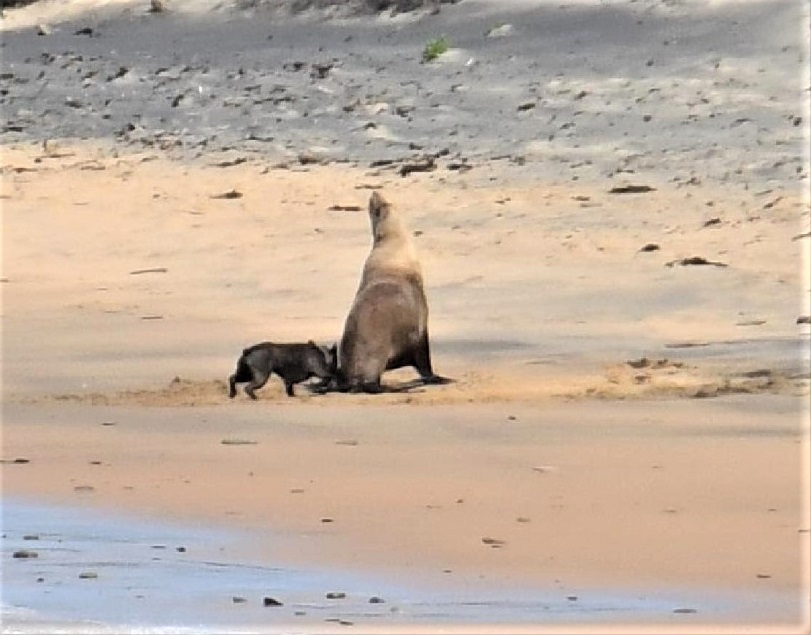
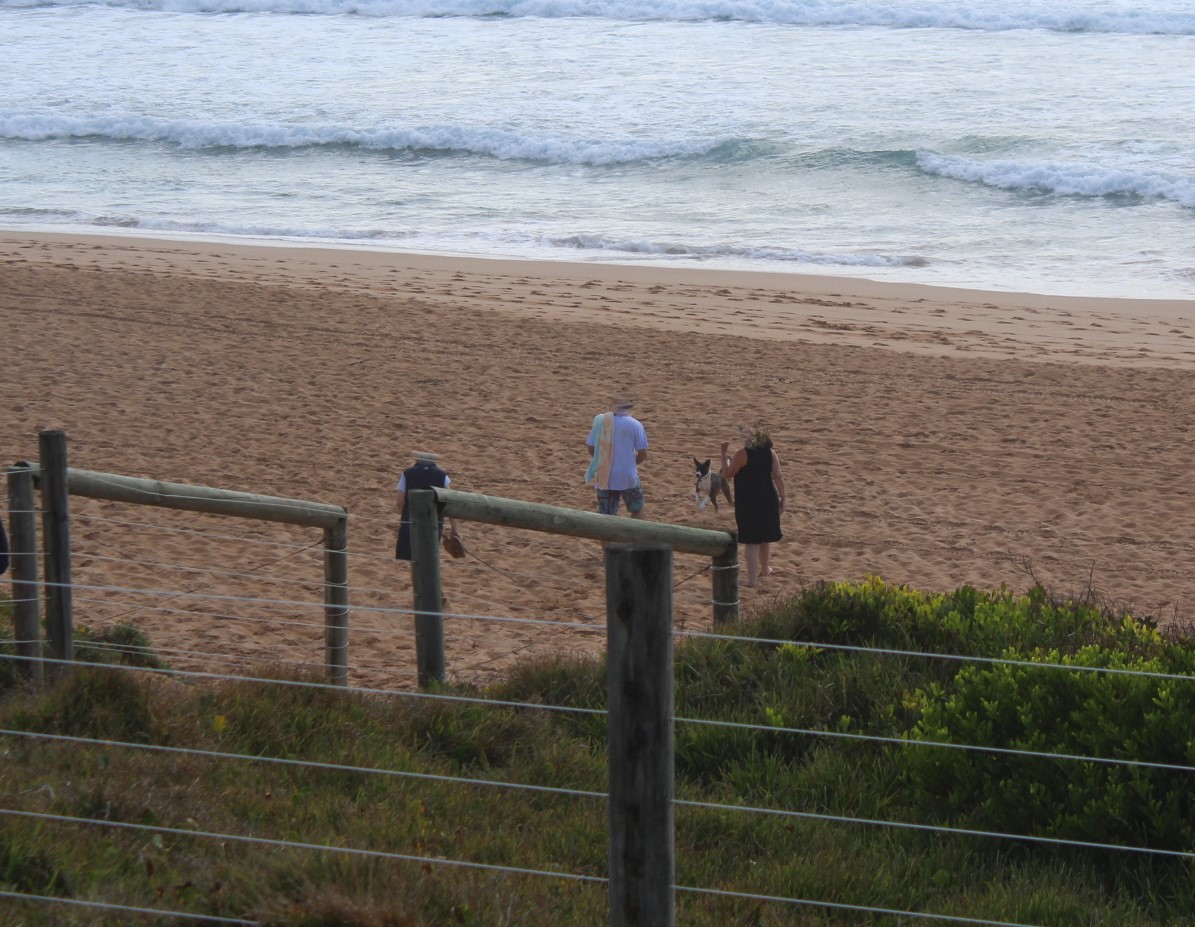
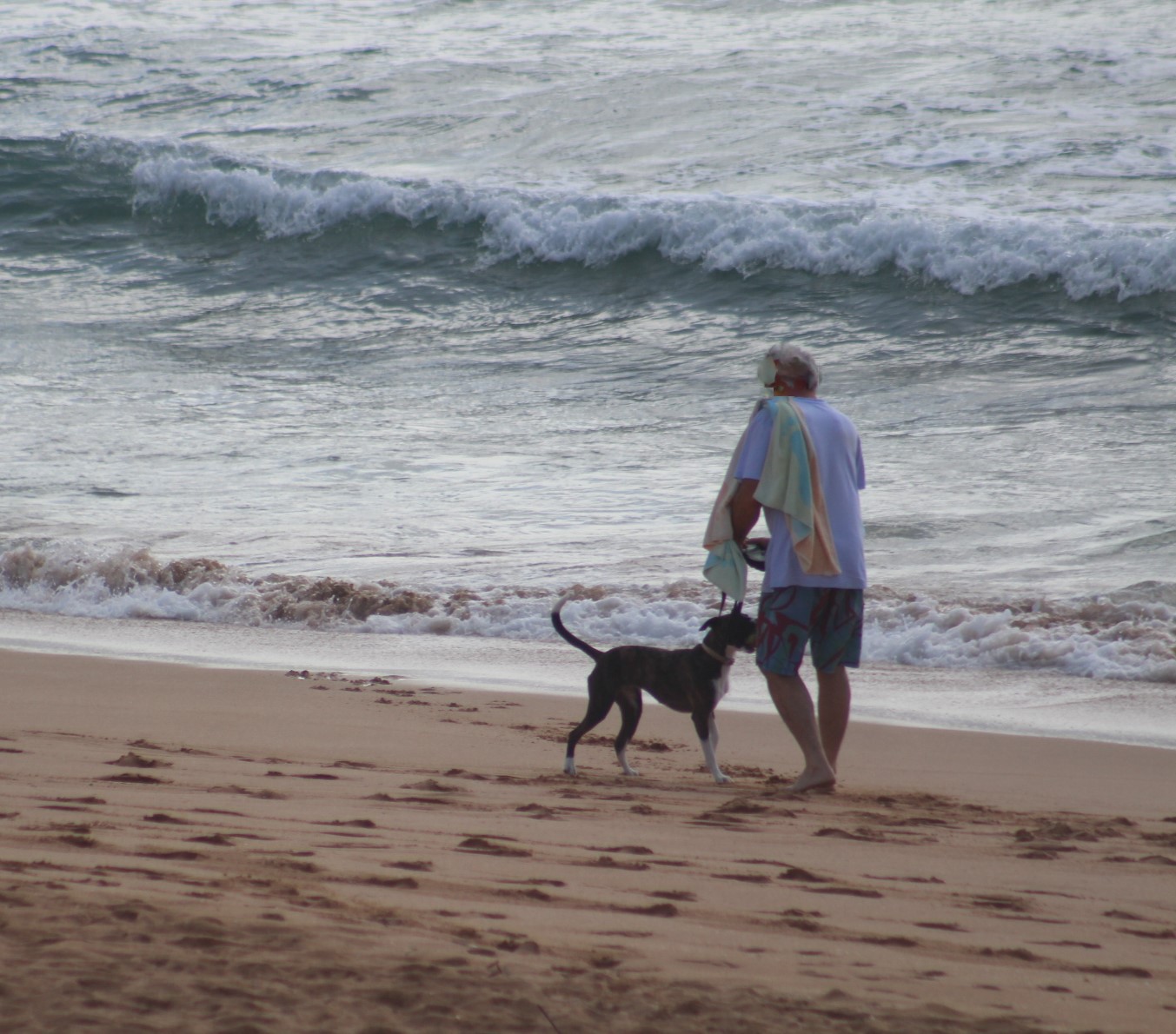
North Palm Beach; dogs are being taken into this area despite clear signage this is a no dogs area
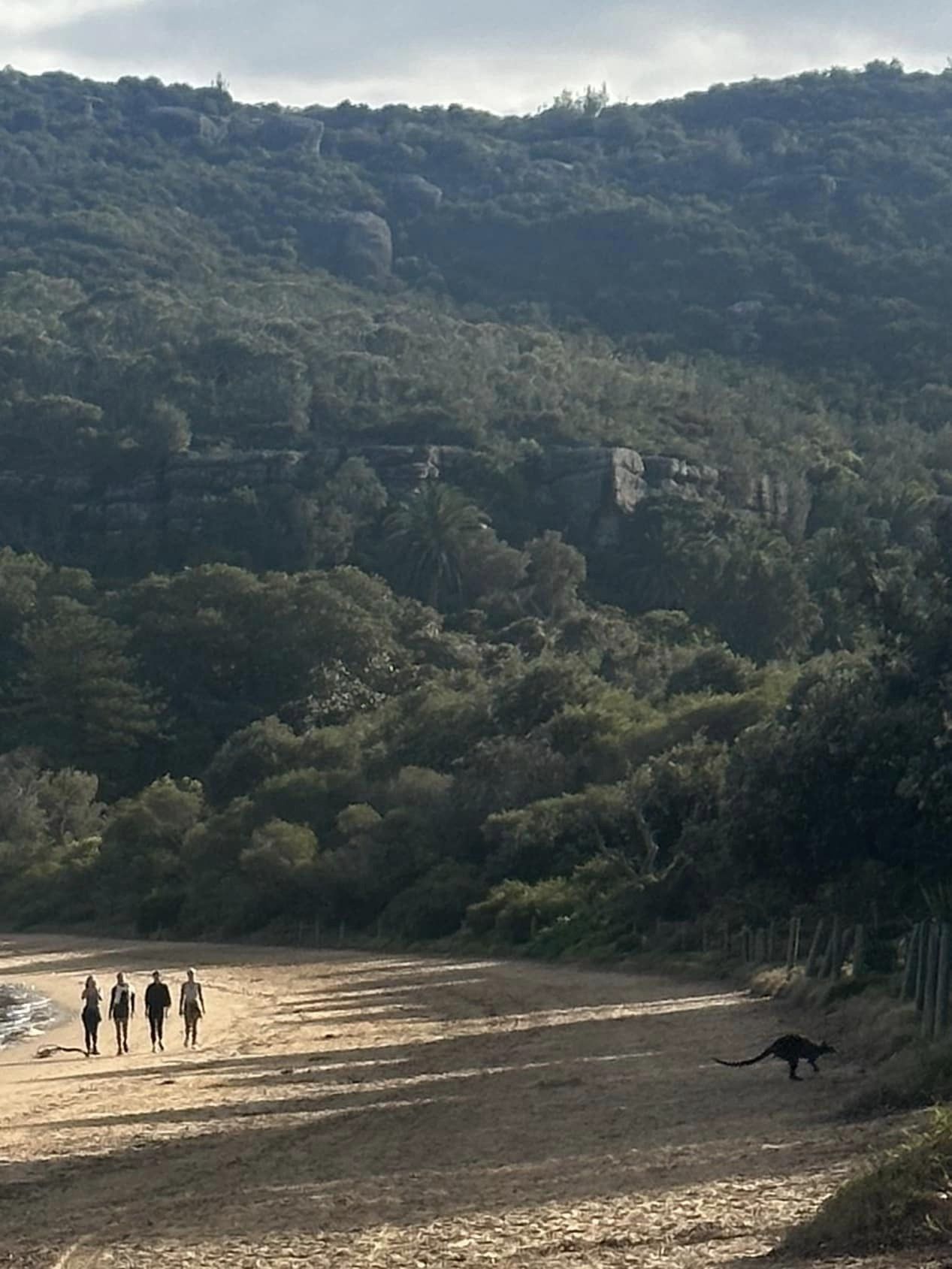
Wallaby going into sand dunes at Station Beach, Thursday August 24 2023, photo supplied.
Dog offleash on Station Beach in 2023, and signage these dog walkers ignored - they had been seen and photographed bringing this dog out of the Barrenjoey Headland National Park area - photos supplied.
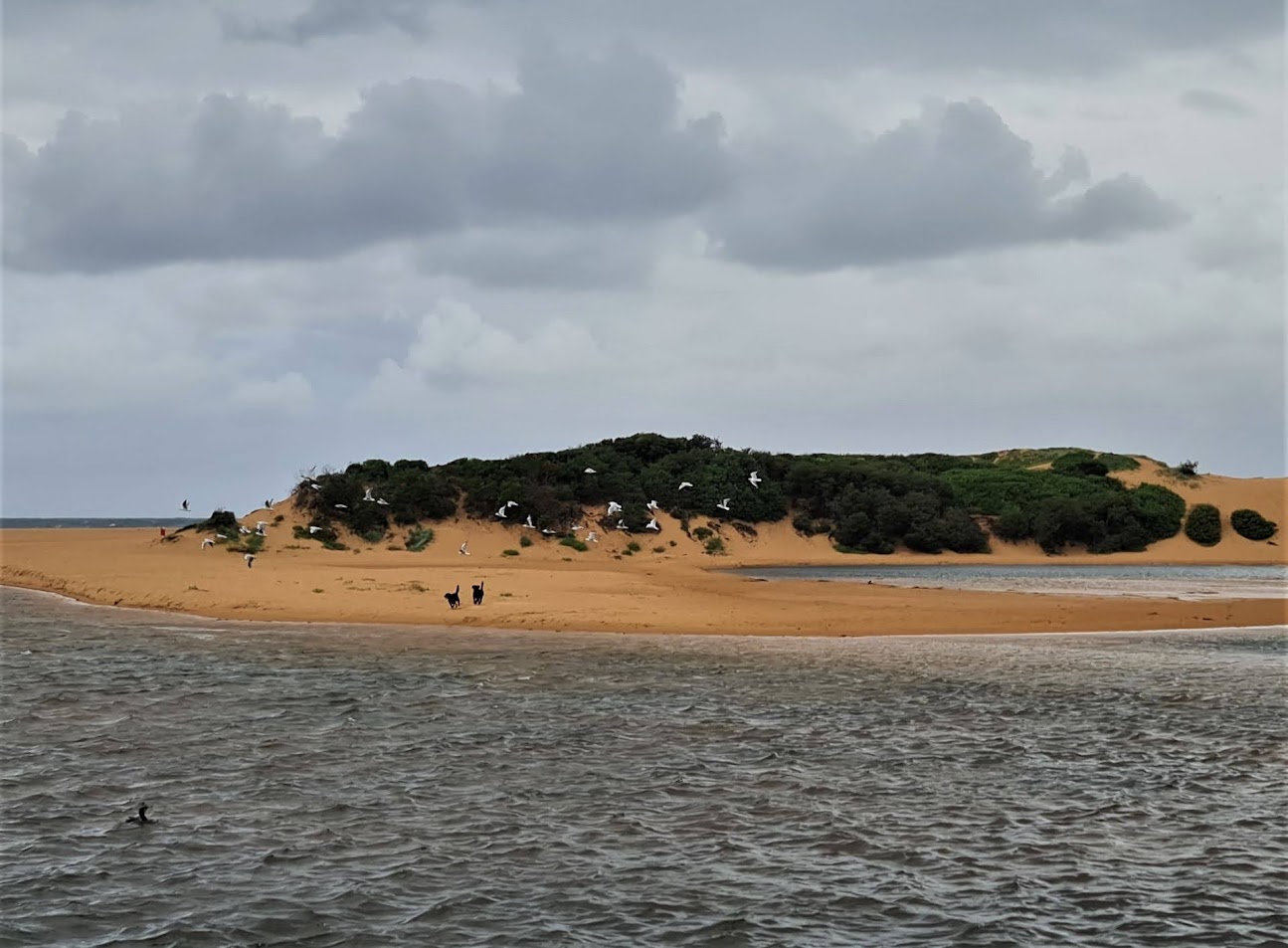
Dogs chasing seagulls off sandbar at North Narrabeen Lagoon January 2024 - no owner in sight. This is also a feeding ground for numerous shorebirds at this location. Photo supplied